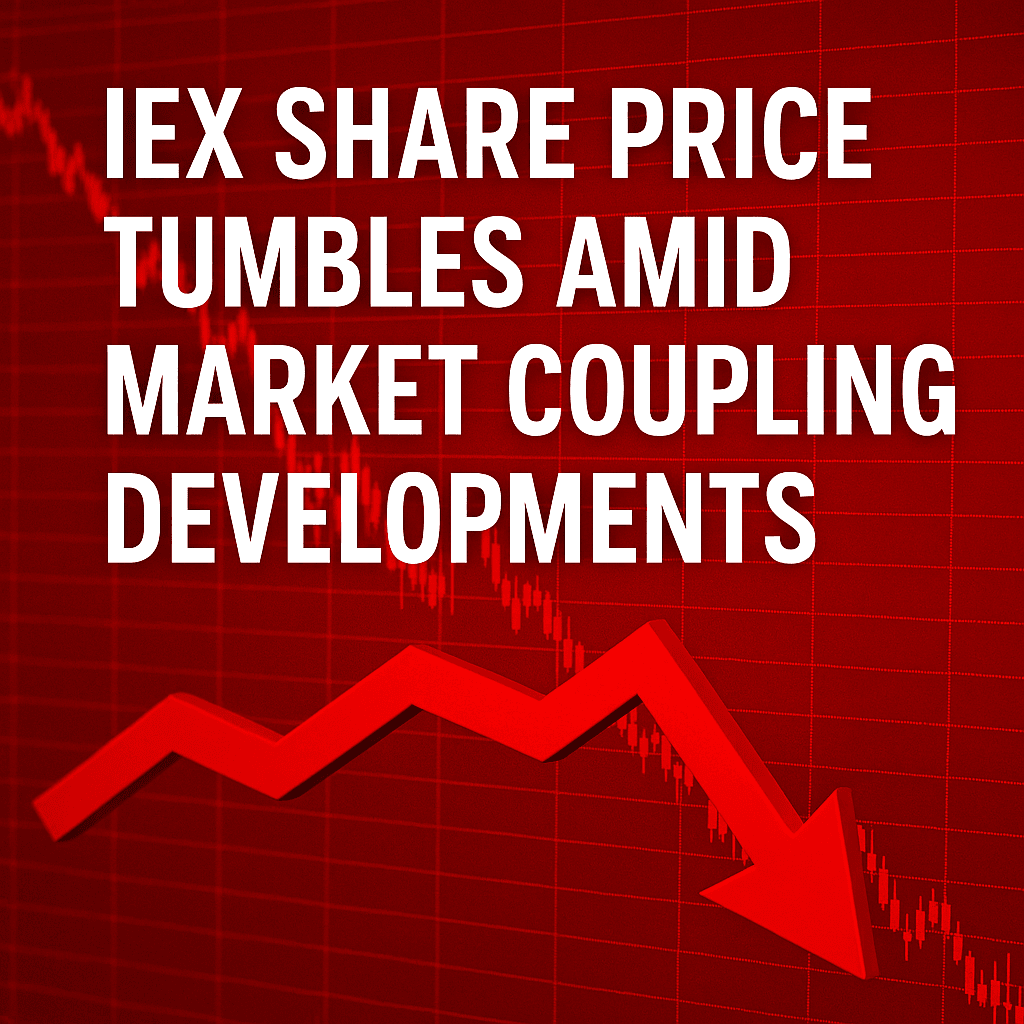By Mumbainews24 | Updated: July 25, 2025
The Indian Energy Exchange (IEX)—a long-standing favorite among investors for its monopoly in energy trading—is currently under pressure. In recent sessions, IEX share price has declined sharply, sparking a wave of concern among both retail and institutional investors. As market discussions focus on the concept of market coupling, many are searching online for answers:
“Why is IEX down today?” and “What is affecting IEX share price?”
Let’s dive into what’s really happening and what you should know before taking any action with your IEX holdings.
What Is the Indian Energy Exchange (IEX)?
Established as India’s first and largest power trading platform, the Indian Energy Exchange facilitates the buying and selling of electricity by distribution companies, open access consumers, and power generators.
For years, IEX has commanded a near-monopoly, offering unmatched liquidity and pricing efficiency, making its stock a solid performer in the power sector. Its high-margin business model and steady cash flow have attracted long-term investors seeking stability in a volatile market.
Why Is IEX Share Price Falling?
The Trigger: Market Coupling Reform
The recent drop in IEX stock price can be largely attributed to the increasing momentum behind market coupling—a government-led proposal aimed at integrating multiple energy exchanges into a single price discovery system.
Here’s why this is raising red flags for IEX investors:
- 💔 Erosion of Monopoly: IEX’s dominant edge may diminish if trades are no longer exclusive to its platform.
- 📉 Potential Drop in Trade Volumes: With common market clearing prices, power buyers may shift to other platforms like PXIL, leading to reduced volumes and revenue on IEX.
- ⚔️ Intensified Competition: Other exchanges stand to gain, directly challenging IEX’s leadership position.
IEX Share News Today: What the Market Is Saying
In the past week, IEX shares have fallen over 15%, according to stock exchange data. Market analysts attribute the sell-off to fears around the upcoming Indian Energy Exchange market coupling policy and its implementation timeline.
Investor sentiment has turned cautious due to:
- Lack of policy clarity
- Uncertainty around execution
- Fear of declining profitability
Search trends reflect the rising curiosity and anxiety, with spikes in queries such as:
- “IEX market news”
- “IEX share price target 2025”
- “Will IEX recover?”
What Is Market Coupling? Why Does It Matter?
Market coupling is a mechanism that aims to integrate different power exchanges under a single algorithmic platform to determine a unified market clearing price for electricity across India.
While this may improve efficiency and transparency in the long run, it disrupts the existing business models of dominant players like IEX.
Potential Benefits of Market Coupling:
- Better price discovery
- Lower volatility
- Transparent and unified access for all participants
Risks for IEX:
- Loss of trading volume exclusivity
- Decreased transaction margins
- Increased regulatory oversight
Should You Be Worried as an IEX Investor?
Not necessarily. While the short-term sentiment is bearish, the long-term fundamentals remain strong.
✅ Positives in Favor of IEX:
- Robust Financials: IEX has a healthy balance sheet and strong cash reserves.
- First-Mover Advantage: IEX’s infrastructure, client base, and brand trust still place it ahead of its peers.
- Time to Adapt: Market coupling is still in proposal stages; actual rollout could take months or even years, offering time for strategic pivoting.
Expert Views on IEX Outlook
According to a recent market report by SIX Research, while IEX share price today is reflecting immediate fear, the long-term narrative remains intact. They emphasize:
“Market coupling is a structural change, not a death sentence. Investors should avoid knee-jerk reactions and focus on fundamentals.”
Several market experts also advise a wait-and-watch strategy, recommending investors to:
- Monitor regulatory announcements closely
- Stay updated with IEX corporate responses
- Reassess holdings once policy details are confirmed
Final Thoughts: What Lies Ahead for IEX?
The current sell-off in IEX shares is largely driven by fear of the unknown rather than confirmed financial damage. While market coupling could change how energy trading is done in India, IEX is not out of the game yet.
Investor Tip: Avoid panic selling. Evaluate your portfolio with a long-term lens and keep an eye on regulatory updates for informed decisions.
Stay connected with Mumbainews24 for all the latest updates on IEX share news, Indian energy sector reforms, and smart investing tips.
🔔 Don’t forget to follow us for daily market insights.


